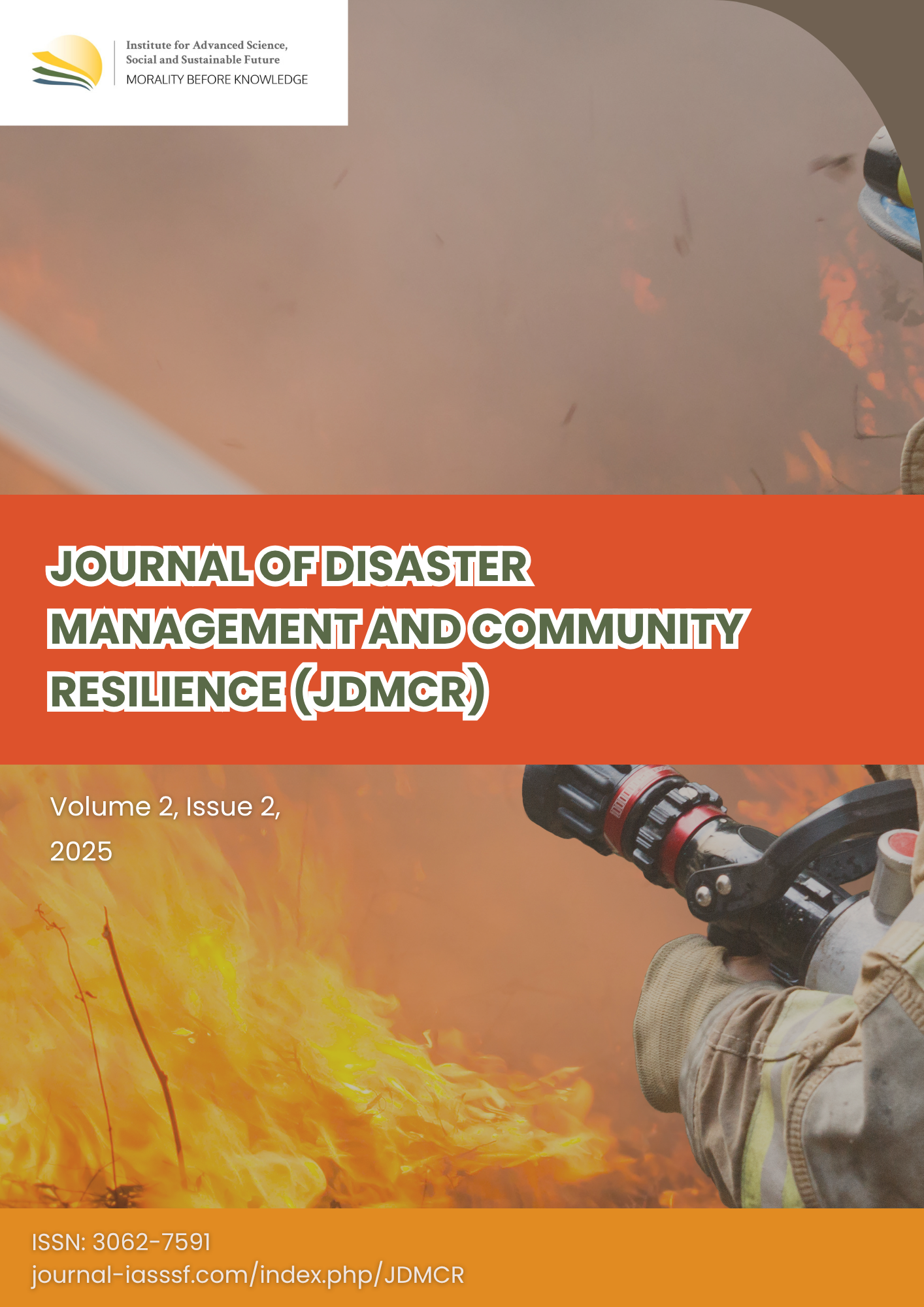Cultural normalization of open waste burning and the escalation of forest fire risks
DOI:
https://doi.org/10.61511/jdmcr.v2i2.2097Keywords:
community waste behavior, cultural normalization, forest fire risk, open waste burning, social practiceAbstract
Background: Over time, open waste burning has evolved into a culturally embedded routine that heightens forest fire risks in underserved areas, while the socio cultural dimensions of this issue remain largely underexplored despite increasing technical and policy efforts. This research examines how the cultural normalization of open waste burning contributes to rising forest fire risks in Indonesia. The study draws on Mary Douglas’s Cultural Theory of Risk, which explains how environmental threats like fire and waste are interpreted through culturally constructed boundaries of order and danger. Methods: A qualitative approach was employed using secondary data analysis. Data sources include peer reviewed articles, policy documents, and reputable news media based on thematic and contextual relevance. Thematic analysis was conducted using both inductive and deductive coding. Findings: The findings reveal that open waste burning is a normalized household practice, often passed down across generations and reinforced by structural limitations and weak regulatory enforcement. Cultural perceptions of waste and collective identity further embed these behaviors. Although the study does not involve primary data, consistency across sources strengthens the analysis. Conclusion: Addressing the cultural acceptance of open burning is crucial to reducing forest fire risks. Effective mitigation requires strategies that are grounded in local social and cultural realities to ensure long term environmental and social relevance. Novelty/Originality of this article: This study highlights the socio-cultural dimensions of open waste burning as an overlooked driver of forest fire risks. By applying Mary Douglas’s Cultural Theory of Risk, it offers a new perspective on how culturally embedded practices shape environmental hazards beyond technical and policy approaches.
Published
Issue
Section
Citation Check
License
Copyright (c) 2025 Devita Savitri

This work is licensed under a Creative Commons Attribution 4.0 International License.













